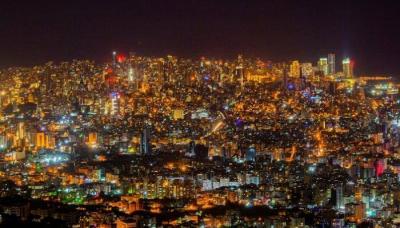Lebanon remains in darkness, with electricity generation at its lowest levels. This situation harms the public network due to instability in production and distribution. Despite this, things remain stagnant; neither the electricity plan has been implemented nor the tariff raised, with Lebanon relying on Iraqi fuel and the goodwill of generator owners. Amid these circumstances, several questions arise about the sector, including: How has the public electricity network been affected? How much does the Electricité du Liban need for maintenance?
Energy Minister Walid Fehmi made it clear to MTV that "raising the electricity tariff is the ideal solution for the sector," confirming that "the public institution has agreed to raise the tariff, which now requires the finance minister's signature and later the approval of the Council of Ministers." He emphasized that the government currently being a caretaker does not significantly affect the decision, especially since it previously signed an electricity plan that includes raising the tariff.
Fehmi noted that "lifting the subsidy on the electricity bill requires political consensus to avoid falling into the problem of increased waste due to unpaid bills," pointing out that "the ministry has observed technical and non-technical waste at 40%, and this should not exceed this limit."
Once the tariff is raised, "Electricité du Liban" will be able to purchase fuel oil and gas oil, according to Fehmi, who expects Lebanon to import fuel from Algeria, which has suitable prices. He confirmed that without raising the tariff, Lebanon would rely on the "morphine drip" of producing electricity solely from Iraqi fuel for another year, prompting caretaker Prime Minister Najib Mikati to secure guarantees from the World Bank for easier imports.
A responsible source in Electricité du Liban explained to MTV that "the institution is currently producing only between 100 to 120 megawatts using two machines: one at the Zouk Mikhael plant and the other in Jiyeh." This low production significantly damages the public network, as previously warned by the institution in its statements, and maintenance costs in dollars. Exceptions from the power cuts include Rafik Hariri International Airport, the Port of Beirut, the Lebanese University, Roumieh Prison, water pumps for government agencies, some public hospitals, and other institutions.
Within this context, Fehmi confirmed that the quantity of Iraqi fuel expected to arrive at the end of September would increase production to nearly 300 megawatts, meaning that Electricité du Liban would be able to provide three hours of electricity daily.
The source noted that "when electricity production is less than 1,000 megawatts, it is natural to experience network instability and complete electricity outages at times (blackouts), which will have repercussions on the stations and network." This situation has prompted Electricité du Liban to send several letters requesting permission to halt production when energy production falls to 100 megawatts or less, limiting distribution in these instances to essential public facilities.
According to the information, Electricité du Liban requires funding in dollars to address the damages that occurred to the public network due to violations at transformation centers and faults affecting the network. The source indicated that "Electricité du Liban needs about 300 to 400 million dollars for maintenance," explaining that "these figures were outlined in the electricity plan approved by the Council of Ministers."
The source confirms that "the solution to the electricity crisis lies in raising the tariff as soon as possible because this will help increase supply hours and secure fuel oil and gas oil, provided that the tariff is linked to the exchange rate of the Sayrafa platform."




